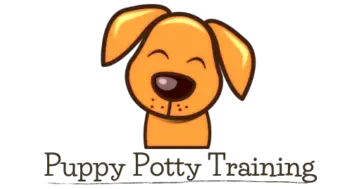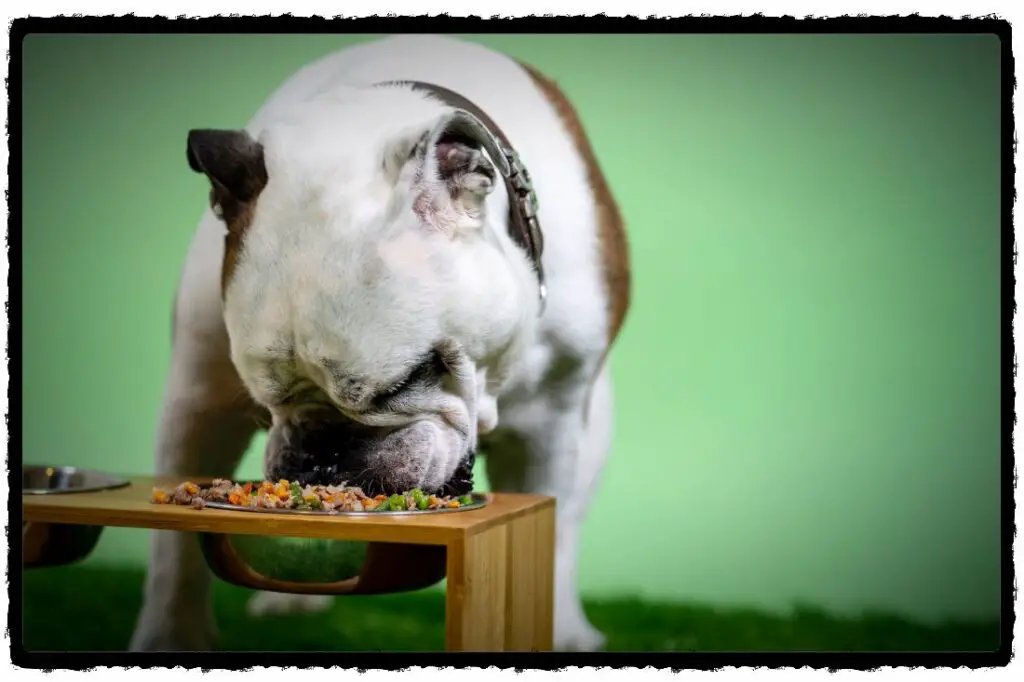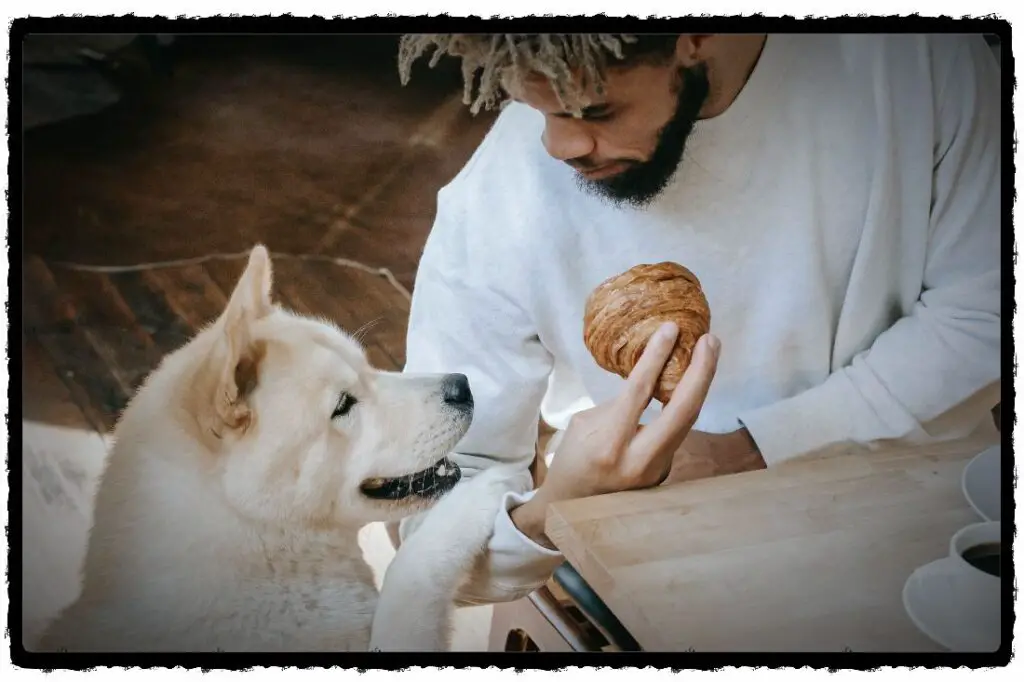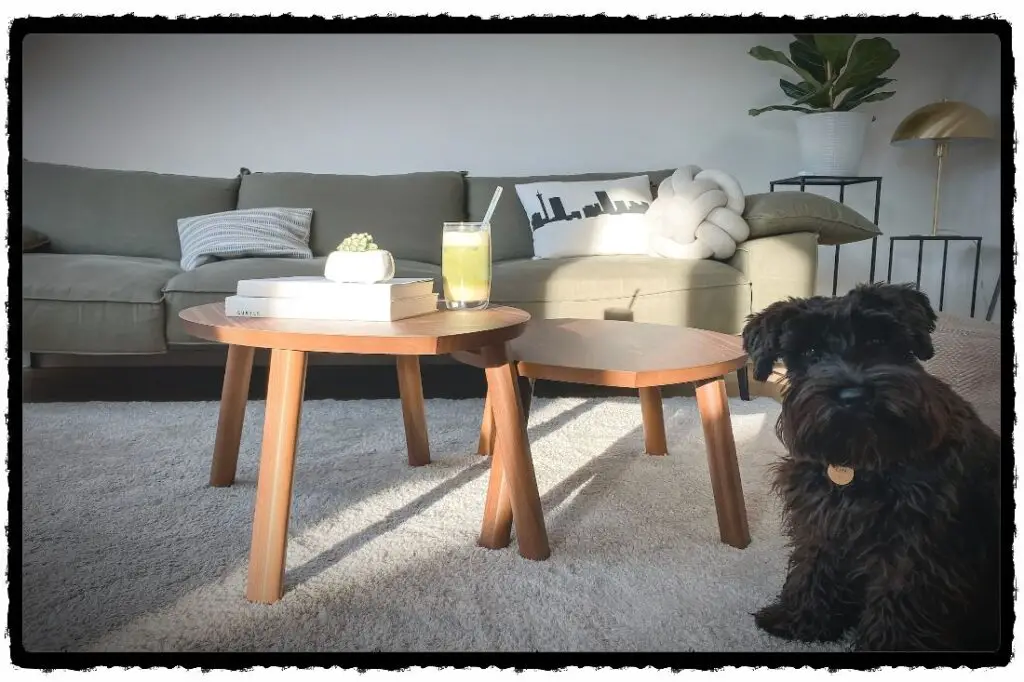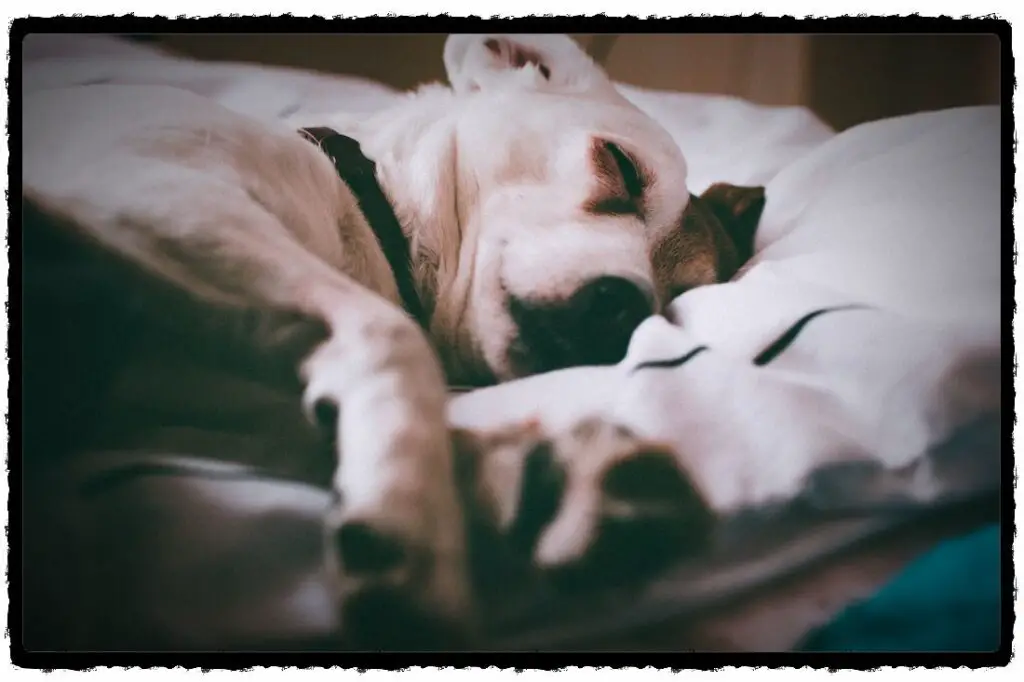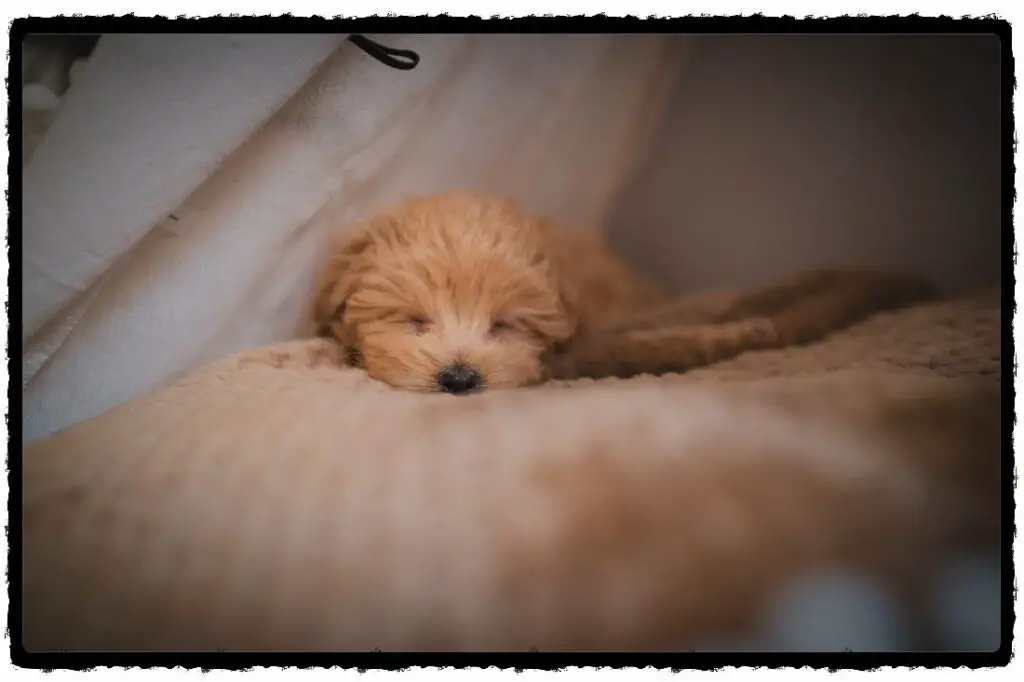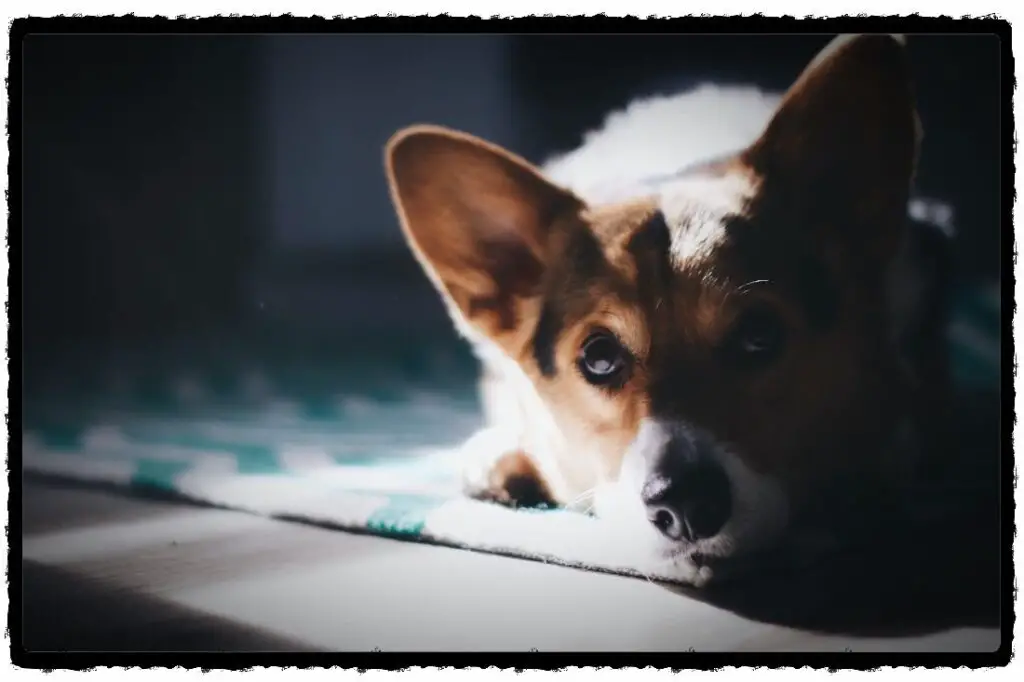16 weeks old puppies are still full of energy. They will always be eager to jump and play. They want free access to the house so they can enjoy the company of their family members. However, if your 16-week-old puppy is still not potty trained, you can’t let him roam around the house freely.
Potty training looks straightforward when you read about it over the internet, but when you put the knowledge into practice, it can prove to be challenging.
So, you are looking forward to the day when your little fellow will go outside to do the business without your help.
But he is just 4 months old yet. Let’s read about potty training a puppy at this age.
Why is a 16-week-old puppy still not potty trained?
It is very normal for 16-week-old puppies to have potty accidents. Why? Because they are too young to be fully potty trained. At this age, puppies will start to improve their training, but you still have a long way to go.
You can also say that 16 weeks is the age when you start to potty train your puppy.
Did you read my article; on when to start potty training a puppy?
Like most dog trainers, I suggested starting potty training a puppy between 12-16 weeks old. So you see? It is too early to expect a decent business from a pup of this age.
Even if you have already started potty training, your puppy was showing a really good process, but they still may have more accidents at this age.
Why? Because of teething.
At around 4 months old, puppies become very uncomfortable because of the teething process. This can also cause them to take a few steps back in potty training.
16-week-old puppy toilet schedule:
A 16-week-old puppy can hold his bladder for about 3-4 hours, depending upon factors like breed, size, individual habits, and health.
Small breed dogs will require toilet breaks earlier than large breed dogs.
Puppies also need toilet breaks after they drink water or eat their meal. Or when they become physically active.
So, you need to take the puppy out (or on the pad):
- After 5-15 minutes of eating
- 5 minutes after drinking water
- Right after physical activity like training or playing
- First thing in the morning
- Right before bed
- When you guys are leaving home
- And when your canine shows the signs like circling, sniffing, scratching, staring, etc.
- Every 3-4 hours (if none of the above is happening)
What things do I need to potty train my puppy?
Here is the list of everything you need to potty train your puppy:
- A Planner / Tracker: To track the routine, accidents, and other important stuff.
- A leash: When potty training, the puppy should always be on a leash.
- A crate: crate training helps with potty training
- Playpen or baby gates to confine the puppy until he learns to potty on the spot.
- Enzyme cleaner: ALWAYS ALWAYS clean puppy accidents with an enzyme cleaner.
- Dog treats: Always keep some stock of dog training treats in your training bag.
- UV flashlight: It’s a must-have to find out urine stains in the house to keep your dog from peeing in that area again.
Find the links to shop these products on Amazon in the table below.
| Supplies | Shop |
|---|---|
| Printable Tracker | Free Download |
| Leash | Check price on Amazon |
| Enzyme cleaner | Check price on Amazon |
| Training Treats | Check price on Amazon |
| Poop bags | Check price on Amazon |
| Paper towels | Check price on Amazon |
| UV flashlight | Check price on Amazon |
| Potty bells | Check price on Amazon |
| Potty training spray | Check price on Amazon |
| Pee pads (optional) | Check price on Amazon |
| Pooper scooper (optional) | Check price on Amazon |
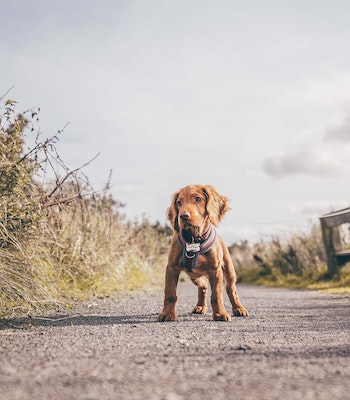
How to potty train a 16-week-old puppy?
Potty training a puppy is quite a simple but challenging process.
Here’s what to do step by step.
1- Confine your puppy in an area where the floor is easy to clean.
2- Put your puppy on a schedule and keep a hawk’s eye on him on what he does before peeing or pooping. The most common cues are scratching, barking, sniffing, circling, staring, and barking. Notice what cues your puppy shows.
3- Note down after how much time of eating, drinking, playing, or exercising; he needs a toilet break.
4- Fix a potty spot and a potty command. (Always use one command and one spot for a puppy).
5- Now, every time he needs a toilet break, take him to the potty spot on a leash. A typical potty schedule of a 16-week puppy is given under the heading “16-week-old puppy toilet schedule.”
6- Say your fixed potty command when you guys are outside for the toilet. Stand borning and do not let your puppy get distracted by anything. Repeat the potty command often until your puppy does the business.
7- As soon as your puppy does the business, pat him and give him a treat IMMEDIATELY. So your puppy knows that he has got something great when he does the business here.
8- If your puppy had an accident in the house or you catch him doing the act. Clap to distract him. Do not yell or talk to him. Just put him on a leash and take him to the spot. Do not pay attention to him; just take him out.
9- If he pees there, then good; if not, it’s still okay; he must have emptied his bladder inside. come back, confine him, and clean the mess with an enzyme cleaner. (Here’s how to clean perfectly.)
10- Use a UV flashlight to check if the urine stains are gone.
11- Now, take your tracker and write down the time and place of the accident. Also, note what he was doing before the accident. Was he physically active? Note all the important points.
(Do you still need more information on potty training a puppy? Read this to get all the detailed and step-by-step information.)
Does a 4-months old puppy need a potty break at night?
Yes, a 4-month-old puppy cannot sleep through the night without peeing. He will require at least 1-2 toilet breaks during the night.
According to a puppy’s typical bladder control capacity, your 16-week-old puppy will need to go to the toilet 3-4 hours after bed.
So set your alarms according to that. The first potty break will be 3.5 hours after his last potty break (that he had before bedtime). The second potty break will be 4 hours after the first potty break.
When it’s time, pick him up, go to the potty spot and say the potty command. Keep the lights dim, and do not make it a playtime. When he does the business, just give him a treat silently but immediately.
Put him back to sleep right away.
Read more: How to potty train a puppy at night?
How long will it take?
When you start potty training at 16 weeks, your puppy will take around 12 weeks to show good progress in training. However, you shouldn’t stop training until he is 9 months to one year old.
Because puppies do not develop enough bladder strength before this age.
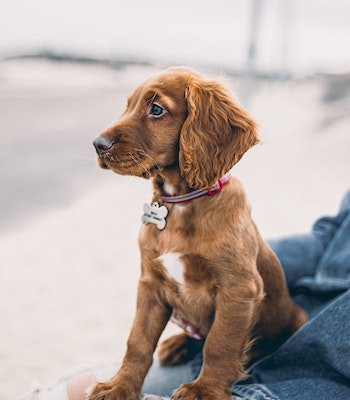
How do you know when my puppy is potty trained?
Your puppy should be at least 9 months old before you expect him to be fully potty trained.
Once he reaches this age and he goes without an accident for over 3-4 weeks, you can say that he is potty trained.
Training your puppy to ring a bell to go potty after that is best.
Conclusion:
It is very normal for a 16-week-old puppy to have potty accidents because he is too young. It’s actually the age when you should start potty training. So expecting him to do the business properly is unrealistic.
Don’t worry, and start training your puppy right now.
Below are the links to the detailed guides and other necessary information.
